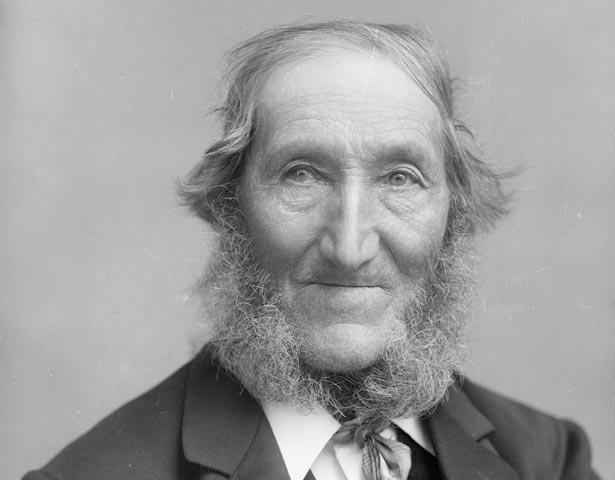
Fighting for the eight-hour working day
Labour Day commemorates the struggle for an eight-hour working day. New Zealand workers were among the first in the world to claim this right when, in 1840, the carpenter Samuel Parnell won an eight-hour day in Wellington. Labour Day was first celebrated in New Zealand on 28 October 1890, when several thousand trade union members and supporters attended parades in the main centres. Government employees were given the day off to attend the parades and many businesses closed for at least part of the day.
The date, 28 October, marked the first anniversary of the establishment of the Maritime Council, an organisation of transport and mining unions. The fledgling union movement was decimated by defeat in a trans-Tasman Maritime Strike in late 1890 but, despite this, the first Labour Day was a huge success. In Wellington, the highlight was an appearance by the elderly Parnell, who died just a few weeks later. From the mid-1890s the union movement began to recover slowly under the Liberal government. The Liberals' industrial conciliation and arbitration system, introduced in 1894, earned New Zealand a reputation of being a 'working man's paradise' and a 'country without strikes'.
Early Labour Day parades drew huge crowds in places such as Palmerston North and Napier as well as in Auckland, Wellington, Christchurch and Dunedin. Unionists and supporters marched behind colourful banners and ornate floats, and the parades were followed by popular picnics and sports events.
These parades also had a political purpose. Although workers in some industries had long enjoyed an eight-hour day, it was not a legal entitlement. Other workers, including seamen, farm labourers, and hotel, restaurant and shop employees, still worked much longer hours. Many also endured unpleasant and sometimes dangerous working conditions. Unionists wanted the Liberals to pass legislation enforcing an eight-hour day for all workers, but the government was reluctant to antagonise the business community.
What the Liberals did do was make Labour Day a holiday. The Labour Day Act of 1899 created a statutory public holiday on the second Wednesday in October, first celebrated in 1900. The holiday was 'Mondayised' in 1910, and since then it has been held on the fourth Monday in October.
In the first decade of the 20th century industrial unrest reappeared. The Liberal government was in decline, prices were rising and the Arbitration Court was seen as reluctant to raise wages. The more militant labour movement that emerged from around 1908 rejected the Liberals' arbitration system and condemned the increasing commercialisation of Labour Day parades. Many floats advertised businesses as well as temperance organisations, theatres, circuses and patriotic causes. Some socialists promoted May Day (1 May) as an alternative celebration of workers' struggles. Although unionists and their supporters continued to hold popular gatherings and sports events, by the 1920s Labour Day had begun to decline as a public spectacle. For most New Zealanders, it was now just another holiday.
Further information
This web feature was written by Neill Atkinson and produced by the NZHistory team.
Links
- Related feature: 'Black Tuesday': the 1912 Waihi strike
- Samuel Parnell biography
- Labour Day collection (NZ On Screen)
Books
- Bert Roth, 'Labour Day in New Zealand', in John E. Martin & Kerry Taylor (eds), Culture and the labour movement, Dunmore Press, Palmerston North, 1991





Community contributions